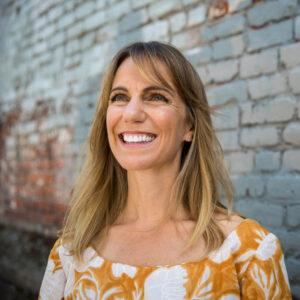
Vice President, Development & Engagement*
Harvesting forest berries Photo credit: Sean Gutierrez
With your support, we furthered new ways of living and doing business in 2018. Share in the highlights!
In late November, Ecotrust is humming. We’re finalizing our 2019 strategy and working ‘round the clock to muster the financial resources to make good on our ambitions. As we work so hard for what’s next, it feels equally important to breathe deep and take a moment to look back at this year’s hard-earned gains and sparks of inspiration.
I am proud to share with you the highlights of Ecotrust’s work in our region over the past year. With your support and alongside many partners, these accomplishments shone bright in 2018:
In partnership with the University of Washington, we published a new peer-reviewed study analyzing the carbon storage potential of two key components of Forest Stewardship Council (FSC) timber management, a global certification program that sets the standard for what climate-smart forestry can look like on the ground. Among our findings: FSC management always stores more carbon than traditional management in the Douglas-fir forests of our region. Now, we’re out sharing what we learned with builders, land managers, and policymakers, whose collective impact can shape the market for climate-smart wood.
In Oregon classrooms, we’re working to secure the future of our forests by educating high school students in responsible forest planning and conservation. Building on the success of Forest Planner — a software application we designed to promote climate-smart forest management — we are now expanding the tool to include classroom-ready features and accompanying lesson plans, for a spring 2019 launch. By engaging students and teachers in real-world discussions about timber harvesting, conservation, and wildlife management, we are training up a new generation of climate-smart forest advocates.
This fall, Ecotrust worked with five partner organizations to co-launch the Green Workforce Academy. The Academy empowers young people of color with the skills they need to find jobs in the green economy. In 2018, this pilot cohort of six participants received environmentally-focused training, pre-apprenticeship assistance, and complementary education and support services. With strong partnerships and dedicated support from our community, we expect to engage 75 young adults each year. Ecotrust is honored to work on this initiative in partnership with the Blueprint Foundation, Native American Youth and Family Center, ReBuilding Center, Wisdom of the Elders, and Self Enhancement, Inc.
The “Ag of the Middle” Accelerator — our first-of-its-kind business training program for mid-sized farmers, ranchers, and fishermen — is now 34 producers strong. With participants from California, Oregon, Washington, and Alaska, this group collectively manages 8,283 acres and sustainably harvests seafood from eleven different fishing communities.
Nearly 319,000 cafeteria meals have been served featuring local, sustainable proteins as a result of the NW Food Buyer’s Alliance, a group Ecotrust co-convenes to bolster the capacity of institutional food buyers to buy more sustainable, regionally-grown products. And for foodservice chefs and cooks who are ready to go “whole hog” with their purchasing dollars and culinary talent to build a food system that is equitable, restorative, prosperous and delicious, we built a guide to help them get started.
Our first two Indigenous Fellowship Program fellows — Stephanie Cowherd (San Carlos Apache) and Miakah Nix (Haida/Tsimshian) — joined Ecotrust in the spring of 2018 and tackled projects ranging from forest management plans in Washington to traditional foods celebrations in Alaska, adding tremendous value and insight to our team.
Over the course of the year, Ecotrust provided more than 36 local-scale fishing businesses and organizations across Alaska and the Northwest with values-based business and technical support. In order to boost consumer awareness of the benefits of buying local seafood, we also worked with fishing community members to create a series of “Know Your Fisherman” promotional videos, supporting the growth of a strong local fish movement.
This month, we’ll hammer in the last nail at Redd East. With its soaring main hall, interactive demonstration kitchen, and flexible event and convening spaces, Redd East will complete the Redd on Salmon Street campus. With Redd East, the stage is set for public engagement and community partnership opportunities, and sets a place at the table for those traditionally left out of the food system dialogue.
I hope this snapshot provides you with the same sense of progress and inspiration I feel today. Working at the nexus of environment, economy and equity, it’s clear that “business as usual” has run its course. Advancing meaningful, lasting change is never easy. But drawing strength from each other and the ground beneath us, we can accomplish so much.
Thank you for joining Ecotrust in this work, and for making change possible.
In gratitude,
Lily